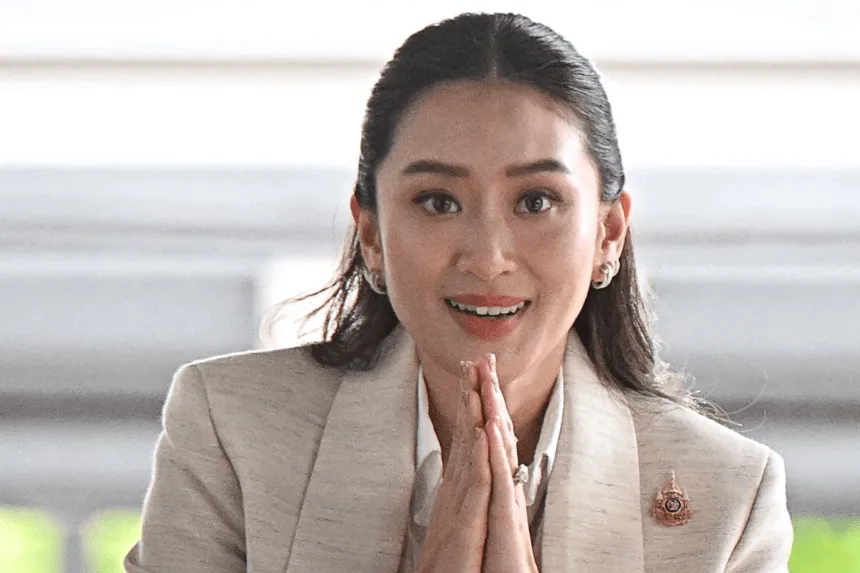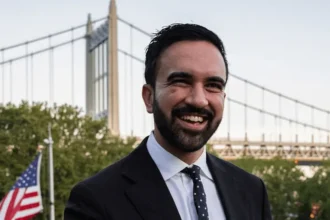Thailand is experiencing a major Thai political stability crisis following the leak of a controversial phone call between Prime Minister Paetongtarn Shinawatra and former Cambodian leader Hun Sen. The conversation, originally intended to ease tensions over a border dispute, has backfired politically, provoking backlash from the public, criticism from the military, and fragmentation within the ruling coalition.
- What Sparked the Thai Political Stability Crisis?
- How Did the Leak Impact the Ruling Coalition?
- How Has Cambodia Responded, and Why Is It Escalating the Conflict?
- What Role Does the Shinawatra Legacy Play in the Crisis?
- What Steps Can Be Taken to Resolve the Crisis?
- Conclusion: Why Thai Political Stability Must Be Prioritized Now
This latest development comes at a critical time for Paetongtarn, who has only been in office for 10 months. Her young administration is now struggling to maintain its hold on power amid growing internal discontent and worsening diplomatic relations with a neighboring country.
What Sparked the Thai Political Stability Crisis?
The crisis began when audio of a private conversation between Paetongtarn and Hun Sen was leaked and made public. In the 17-minute recording, Paetongtarn referred to the former Cambodian leader as “uncle” and promised to “take care” of his concerns over the Thai-Cambodian border tension. More controversially, she appeared to belittle a senior Thai military officer involved in the matter, claiming he was “trying to look cool” and “not being helpful.”
These remarks drew immediate backlash from both the public and military officials. Many Thais saw her comments as disrespectful to the armed forces, which have historically played a significant role in the country’s politics. In Thailand, the military commands both public trust and political influence, so any statements undermining its authority are viewed with great seriousness.
In response to the public outrage, Paetongtarn apologized, saying, “I would like to apologise for the leaked audio of my conversation with a Cambodian leader which has caused public resentment.” She explained that her comments were part of a negotiation technique designed to de-escalate the situation.
However, the explanation did little to calm the situation. The damage had already been done, and the leak became the catalyst for a broader Thai political stability crisis that now threatens the future of her government.
How Did the Leak Impact the Ruling Coalition?
The leak had immediate political consequences. On Wednesday, the Bhumjaithai Party—Thailand’s second-largest ruling party and a key member of the coalition—announced its withdrawal from the government alliance. This departure drastically reduced the ruling coalition’s parliamentary strength and left it clinging to a razor-thin majority.
Bhumjaithai’s exit also sent a strong signal to other coalition members. Two additional parties have already scheduled emergency meetings to reconsider their involvement in the government. Should they decide to leave, the current administration would lose its majority and potentially collapse.
The opposition, seizing the opportunity, has called for Paetongtarn’s resignation. Critics argue that the leak not only revealed poor diplomatic judgment but also confirmed longstanding concerns over her political maturity and independence, especially in matters involving her family’s international relationships.
This sequence of events has transformed a diplomatic misstep into a full-blown Thai political stability crisis, threatening to unravel the government from within. Read another article on the Afghan Deportation Crisis Explained
How Has Cambodia Responded, and Why Is It Escalating the Conflict?
The diplomatic damage has also been substantial. Following the leak, Thailand’s Ministry of Foreign Affairs issued a letter to the Cambodian ambassador expressing “deep disappointment.” The letter stated, “Trust and respect between the two leaders are fundamental to good neighbourliness and conduct among states,” and added that the leak could “severely affect ongoing efforts to resolve the problem in good faith.”
Hun Sen admitted to sharing the recording with 80 politicians and said one of them had leaked it. He later published the entire audio on his Facebook page, a move that shocked Thailand’s leadership and further intensified the crisis.
In retaliation for the border-related tensions and perceived disrespect, Cambodia imposed a range of sanctions and bans on Thailand. These include halting imports of Thai agricultural products, suspending electricity and internet exchanges, and banning Thai dramas from Cambodian television and cinemas. Such moves have not been seen in over a decade, further worsening regional relations and increasing pressure on the Thai government to respond decisively.
These diplomatic actions have added an external layer to the internal Thai political stability crisis, increasing the stakes for Paetongtarn’s administration.
What Role Does the Shinawatra Legacy Play in the Crisis?
Paetongtarn Shinawatra’s personal and family history has complicated the crisis. As the daughter of former Prime Minister Thaksin Shinawatra and niece of former Prime Minister Yingluck Shinawatra, she represents one of Thailand’s most polarizing political dynasties. Her family has a long-standing relationship with Hun Sen and Cambodia’s political elite.
Thaksin and Hun Sen, in particular, refer to each other as “godbrothers,” a relationship that critics say could compromise national interests. Paetongtarn’s informal and deferential tone in the leaked call has added fuel to these suspicions.
Her critics argue that her ties may be influencing diplomatic decisions, undermining her objectivity as head of government. The public has grown increasingly skeptical of whether she can act in Thailand’s best interest independently of her family’s political alliances. These questions have amplified the Thai political stability crisis, as calls for leadership accountability grow louder.
What Steps Can Be Taken to Resolve the Crisis?
To move forward, the government must take several critical actions. First, Paetongtarn must work swiftly to stabilize her coalition. That involves rebuilding trust with current partners, possibly renegotiating the terms of cooperation, and offering transparency about her diplomatic strategies moving forward.
Second, she must restore confidence in her leadership by engaging openly with the public and acknowledging the gravity of the situation. This includes addressing concerns over national security, institutional respect, and impartial foreign policy.
Third, diplomatic efforts must be restored through formal channels. Paetongtarn has already pledged to avoid further private communications with Cambodian leaders. Instead, she must now rely on her foreign ministry and official representatives to rebuild trust with Phnom Penh.
Lastly, greater parliamentary oversight and public communication will be essential to prevent the Thai political stability crisis from deepening. Transparent action plans, frequent updates, and bipartisan cooperation will help the nation regain political and diplomatic footing.
Conclusion: Why Thai Political Stability Must Be Prioritized Now
Thailand is at a political crossroads. What began as a leaked conversation has spiraled into a full-scale Thai political stability crisis that threatens to derail the current administration, fracture international relationships, and plunge the country into political uncertainty.
The coming weeks will be decisive. The government must act quickly to restore unity, reaffirm Thailand’s diplomatic posture, and regain the public’s confidence. With mounting pressure both domestically and abroad, Paetongtarn Shinawatra’s leadership will be tested like never before.
Stability, transparency, and decisive action are no longer optional—they are essential. For Thailand’s future, resolving the Thai political stability crisis must now be the top national priority.








